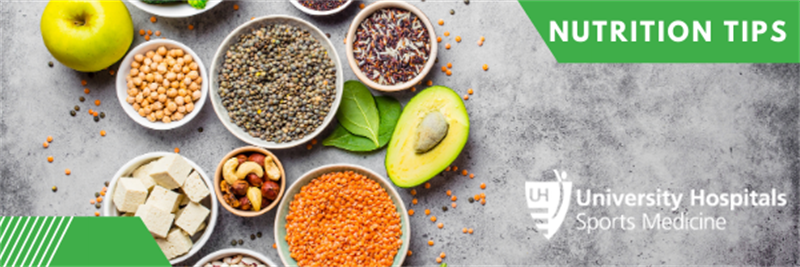Nutrition Tips for Training from University Hospitals

The Union Home Mortgage Cleveland Marathon may have been postponed until the fall, but good training and nutrition is never postponed. Proper fitness techniques, hydration and a healthy diet are always must-dos for those preparing to run a race and just a good idea for all of us.
Amy Jamieson-Petonic, a board-certified sports nutritionist from University Hospitals, medical partner for the Cleveland Marathon, says training is the best time to figure out what works and what doesn’t and offers the following tips for those training for races or those who choose to run on their own.
Before your run:
- Try to have something light with 15-20 grams carbohydrates and some protein two hours before your training run. Examples: ½ of a banana with low-fat cheese or ½ of a bagel with one teaspoon of peanut butter.
- If you are eating something less than one hour before you run, choose something easily digestible and low in fat and fiber. Example: 8 ounces of sports drink or ¾ cup of dry cereal.
- Drink 16 – 24 oz. of fluid two hours prior to training and have 6 – 12 oz. of sports drink 10 – 20 minutes before training.
During your run:
- Consume 30 grams – 60 grams of carbs per hour of training from liquid and/or semisolid sources.
- Drink 6 – 12 oz. of fluid every 15 – 20 minutes during training.
- Start drinking early to prevent dehydration – as much as you can in hot weather.
After your run:
- Make sure to eat something with carbohydrates and protein within two hours. Examples: a turkey sandwich and a glass of milk; a banana with a granola bar; or 8 ounces of chocolate milk.
- Drink 20 – 24 oz. of fluid for every pound lost after training.
If you follow these tips, you can metabolize up to 60 grams of carbohydrates per hour. This is important to help keep your energy levels high and replenish glycogen stores, the stored form of carbohydrates in the body.